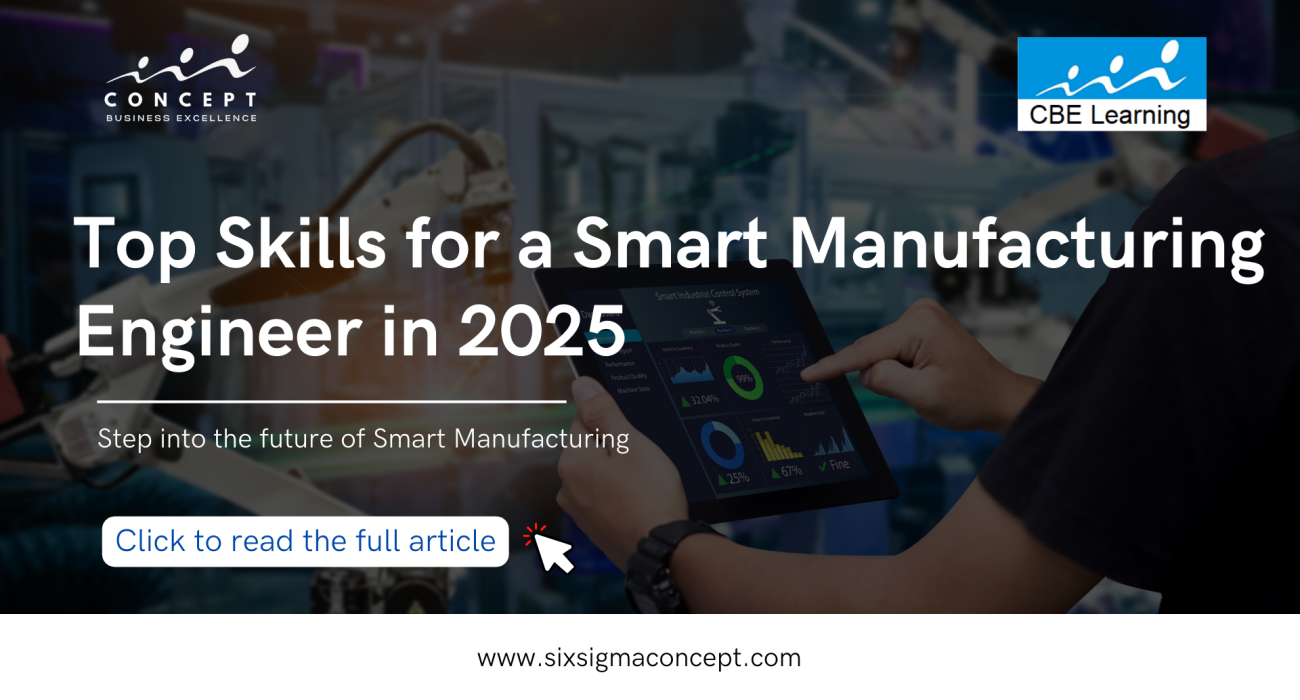Introduction
The manufacturing industry is undergoing a massive transformation, driven by Industry 4.0 technologies such as Artificial Intelligence (AI), Industrial Internet of Things (IIoT), Automation, and Data Analytics. In this evolving landscape, a Smart Manufacturing Engineer plays a critical role in integrating these digital technologies into production processes to improve efficiency, reduce costs, and enhance productivity.
To remain competitive in 2025 and beyond, manufacturing professionals must upskill and adapt to the latest industry trends. In this blog, we will explore the top skills required for a Smart Manufacturing Engineer and how the Certified Smart Manufacturing Professional (CSMP) program can help professionals gain expertise in this field.
1. Industrial IoT (IIoT) & Connectivity
Why It Matters:
IIoT is at the core of smart manufacturing, enabling machines, sensors, and systems to communicate and share data in real-time. Engineers must understand:
- IoT architecture and connected devices
- Cloud computing & edge computing for real-time decision-making
- Cybersecurity measures to protect IoT networks
Real-World Impact:
IIoT helps manufacturers reduce downtime through predictive maintenance, optimize production processes, and improve supply chain visibility.
2. Artificial Intelligence (AI) & Machine Learning (ML)
Why It Matters:
AI and ML are revolutionizing manufacturing by enabling automated decision-making, defect detection, and process optimization. A Smart Manufacturing Engineer should be skilled in:
- AI-driven predictive analytics
- Computer vision for quality control
- AI-powered robotics & automation
Real-World Impact:
AI enhances productivity by reducing human errors, improving quality assurance, and optimizing production workflows.
3. Data Analytics & Digital Twin Technology
Why It Matters:
Big data analytics allows manufacturers to track and improve operational efficiency. Digital twins create virtual models of physical assets for simulation and optimization. Key skills include:
- Data visualization & real-time monitoring
- Simulation modeling & predictive analysis
- Implementing digital twin technology
Real-World Impact:
Manufacturers can test and refine production processes digitally before real-world implementation, saving costs and improving efficiency.
4. Robotics & Automation
Why It Matters:
The rise of autonomous manufacturing requires engineers to work with advanced robotics and automation systems. Core competencies include:
- Programming industrial robots (Cobots, AGVs, AMRs)
- Automating production workflows with AI-driven robotics
- Human-machine collaboration in smart factories
Real-World Impact:
Automation improves productivity, reduces waste, and enhances safety by minimizing human intervention in hazardous tasks.
5. Cybersecurity & Risk Management
Why It Matters:
As manufacturing becomes increasingly digitized, cybersecurity threats pose a major risk. Engineers must develop skills in:
- Securing IIoT networks
- Implementing cybersecurity frameworks (ISO 27001, NIST, etc.)
- Identifying & mitigating cyber threats in industrial environments
Real-World Impact:
A robust cybersecurity strategy protects sensitive data, prevents downtime, and ensures compliance with industry regulations.
6. Smart Supply Chain & Blockchain Technology
Why It Matters:
Supply chains are evolving with real-time tracking, automation, and blockchain-based transparency. Engineers must understand:
- Blockchain for secure transactions
- AI-driven supply chain optimization
- Automated logistics & warehouse management
Real-World Impact:
Efficient supply chains reduce lead times, waste, and operational costs, ensuring seamless production.
7. Leadership & Change Management
Why It Matters:
Beyond technical expertise, leadership skills are crucial for driving digital transformation. Engineers must excel in:
- Managing cross-functional teams
- Implementing change management strategies
- Training employees on digital tools & processes
Real-World Impact:
Successful smart manufacturing engineers bridge the gap between technology and workforce, ensuring smooth adoption of new systems.
How to Develop These Skills? Enroll in the CSMP Program
The Certified Smart Manufacturing Professional (CSMP) program is designed to equip engineers with industry-relevant skills to thrive in the digital era.
What You’ll Learn in CSMP:
✔ Hands-on training in IIoT, AI, and Automation
✔ Practical applications of Digital Twin & Data Analytics
✔ Strategies for Cybersecurity & Smart Supply Chain
✔ Industry case studies & expert-led workshops
As manufacturers embrace digital transformation, certified professionals will be in high demand. Stay ahead of the curve—enroll in the CSMP program today!
📩 Register Now for the CSMP Program


